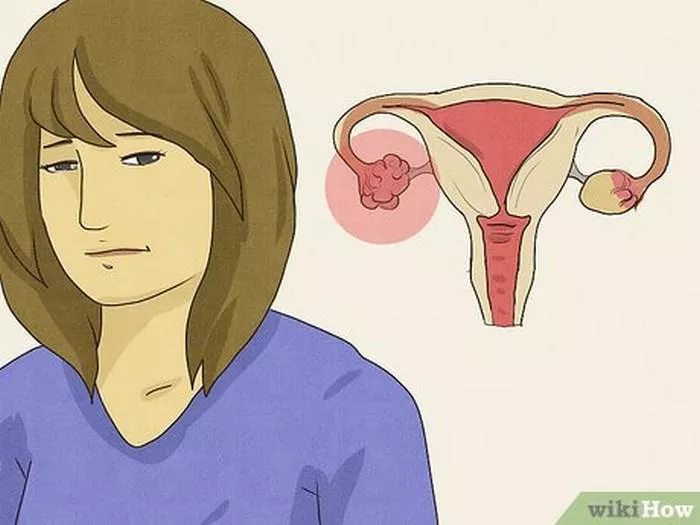In the process of human reproduction, infertility is a complex and challenging issue. It not only affects individuals and families but also involves social and economic aspects. In order to better understand and address this issue, we need to delve into the three main causes of infertility: physiological factors, psychological factors, and lifestyle factors. This article will analyze in detail the impact of these factors on fertility and propose corresponding prevention and treatment recommendations.
Physiological Factors
Physiological factors are one of the main causes of infertility. These factors involve various aspects of the reproductive system, including the ovaries, fallopian tubes, uterus, and male reproductive organs. Here are some common physiological factors and their effects on fertility:
Ovarian dysfunction: The ovaries are an important part of the female reproductive system, responsible for producing eggs and secreting hormones. Ovarian dysfunction may lead to ovulation disorders, polycystic ovary syndrome (PCOS), premature ovarian failure, and other issues, affecting female fertility. For example, patients with PCOS may experience hormone imbalances, irregular menstruation, and hirsutism, which may lead to ovulation disorders and infertility.
Fallopian tube problems: The fallopian tubes are where eggs and sperm meet and fertilization occurs, and they also serve as the passage for transporting the fertilized egg to the uterus. Problems with the fallopian tubes, such as blockages, inflammation, or damage, may result in infertility or ectopic pregnancy. These issues may be caused by infections, surgeries, or other diseases, severely affecting female fertility.
Male reproductive organ problems: Male reproductive organ problems, such as orchitis, epididymitis, and obstructed vas deferens, may lead to a decrease in sperm count, decreased quality, or the inability to ejaculate normally. These issues may be caused by infections, surgeries, trauma, or other diseases, significantly affecting male fertility. For example, orchitis may lead to impaired testicular function, affecting sperm production; epididymitis may lead to inflammation of the epididymis, affecting sperm storage and transportation; and obstructed vas deferens may prevent sperm from being ejaculated normally.
Psychological Factors
The impact of psychological factors on fertility cannot be ignored. Emotional issues such as stress, anxiety, and depression may lead to hormonal imbalances, sexual dysfunction, and decreased immune system function, thereby affecting fertility. For example, chronic stress may lead to elevated levels of cortisol, affecting the normal function of the hypothalamic-pituitary-ovarian axis, leading to ovulation disorders and infertility. Emotional issues such as anxiety and depression may lead to hormonal imbalances and sexual dysfunction, further affecting fertility.
Lifestyle Factors
The impact of lifestyle factors on fertility should not be overlooked. Unhealthy habits such as smoking, drinking alcohol, and staying up late may damage the reproductive system and affect fertility. For example, smoking may lead to a decrease in sperm count, decreased quality, and sexual dysfunction; alcohol consumption may lead to liver damage, hormonal imbalances, and sexual dysfunction; staying up late may lead to hormonal imbalances, decreased immunity, and sexual dysfunction. Additionally, unhealthy dietary habits, lack of exercise, and other lifestyle factors may also have a negative impact on fertility.
Prevention and Treatment Recommendations
For the above three main reasons, the following preventive and treatment measures can be taken:
Regular check-ups: Regular comprehensive check-ups, especially reproductive system examinations, can help to identify potential problems early and intervene. For populations with a family history of infertility, more attention should be paid to health check-ups.
Maintain a healthy lifestyle: Quitting smoking, limiting alcohol consumption, maintaining regular sleep patterns, and balanced diets are the foundation of maintaining good fertility. At the same time, appropriate exercise can improve physical fitness and immunity, helping to prevent infertility.
Reduce psychological stress: Learning some stress-relieving methods such as meditation and yoga can help reduce psychological stress and emotional issues. Seeking professional psychological counseling and treatment is also necessary.
Timely treatment of reproductive system diseases: For existing reproductive system diseases, timely medical treatment according to medical advice is essential. Avoid delaying treatment, which may worsen the condition.
Conclusion
In conclusion, infertility is a complex and challenging issue that requires comprehensive analysis and treatment from multiple perspectives. By understanding the three main causes of infertility, we can better prevent and treat this issue, bringing hope and happiness to more families.























